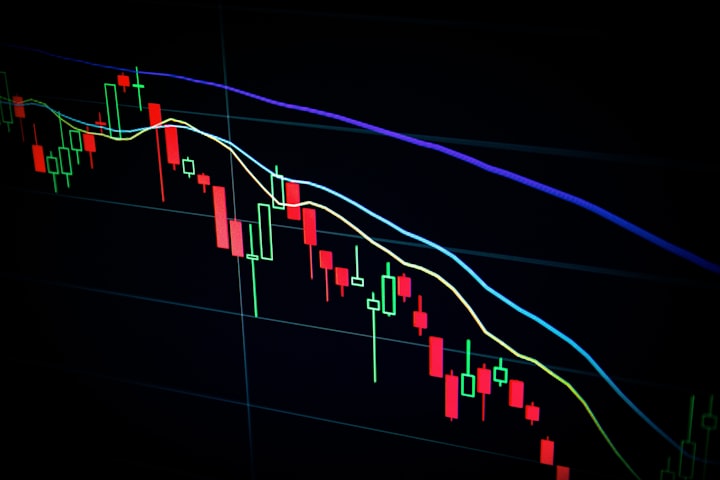All about Stocks and Trader
Learn About Stocks and trader

Stock
A stock represents a share in the ownership of a company. When you buy a stock, you become a part owner of the company and are entitled to a portion of its profits.
Trading refers to the buying and selling of stocks through a stock exchange. The price of a stock is determined by supply and demand for that stock. If more people want to buy a stock than sell it, the price will go up. Conversely, if more people want to sell a stock than buy it, the price will go down.
Traders use a variety of strategies to buy and sell stocks, such as fundamental analysis (examining a company's financials, management, and industry trends), technical analysis (studying price and volume data to identify trends), or a combination of both. The goal of trading is to buy stocks at a lower price and sell them at a higher price, thus making a profit.
Keep in mind that investing in the stock market involves risk, as the price of stocks can be affected by a wide range of factors, including economic conditions, company performance, and global events.
Trader
There are several types of stock traders, including:
Day traders: Buy and sell stocks within a single trading day, usually trying to profit from short-term price fluctuations.
Swing traders: Hold stocks for a few days to several weeks, seeking to profit from intermediate-term price trends.
Position traders: Hold stocks for several months to a few years, taking a long-term view on the company and market conditions.
Algorithmic traders: Use computer programs to execute trades based on mathematical models and pre-set rules.
Value investors: Focus on buying undervalued stocks with a good potential for long-term growth.
Growth investors: Look for stocks of companies that have a high potential for rapid earnings growth, regardless of their current valuation.
Each trader type uses different strategies and has different goals, risk tolerance, and time horizons. It's important to understand your own trading style and risk tolerance before making investment decisions.
World stocks refer to the stocks of companies from different countries that are traded on international stock exchanges. They provide investors with access to a diverse range of businesses and industries, allowing for greater diversification in their portfolios.
World Stocks
Investors can buy world stocks through a brokerage account and trade them just like they would with domestic stocks. Some of the largest stock exchanges in the world include the New York Stock Exchange (NYSE), NASDAQ, Tokyo Stock Exchange (TSE), and the London Stock Exchange (LSE).
Just like with any investment, buying world stocks involves taking on risk, as the performance of these stocks can be influenced by a variety of factors, including economic conditions, company performance, and global events. It's important to do your due diligence and research the companies you are considering investing in, including reviewing financial statements and understanding their competitive landscape.
Advantages of Stock Market:
Potential for high returns
Diversification opportunity
Liquidity
Potential to own part of a company
Disadvantages of Stock Market:
Volatility and risk
Lack of control over company decisions
Possibility of fraud and misinformation
High barriers to entry for individual investors.
Emotional control
Emotional control in the stock market refers to the ability to manage one's emotions while investing in stocks. This includes avoiding impulsive decisions driven by fear or greed, and instead making rational investment choices based on data and market analysis. Maintaining emotional control can help investors make better decisions and avoid costly mistakes.
Tips For Stock Market Trader
Here are a few tips for investing in the stock market:
Do your research: Understand the company, its industry and financial health before investing.
Diversify your portfolio: Spread your investments across different companies and industries to minimize risk.
Have a long-term perspective: Avoid trying to time the market and instead focus on building a diversified portfolio for the long term.
Don't chase returns: Don't invest in a stock because it has recently gone up in price, focus on the fundamentals of the company.
Consider professional advice: Seek advice from a financial advisor or professional if you are unsure about your investment decisions.
Monitor your investments: Regularly review your portfolio to ensure it aligns with your investment goals and risk tolerance.





Comments
There are no comments for this story
Be the first to respond and start the conversation.